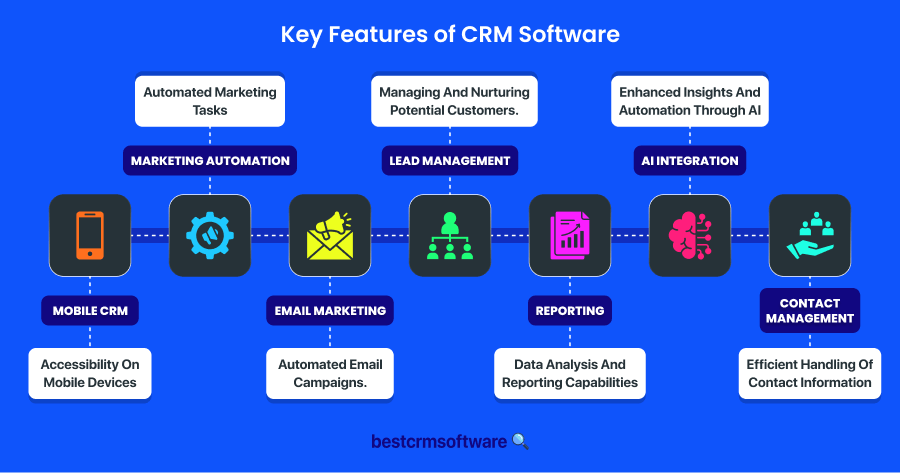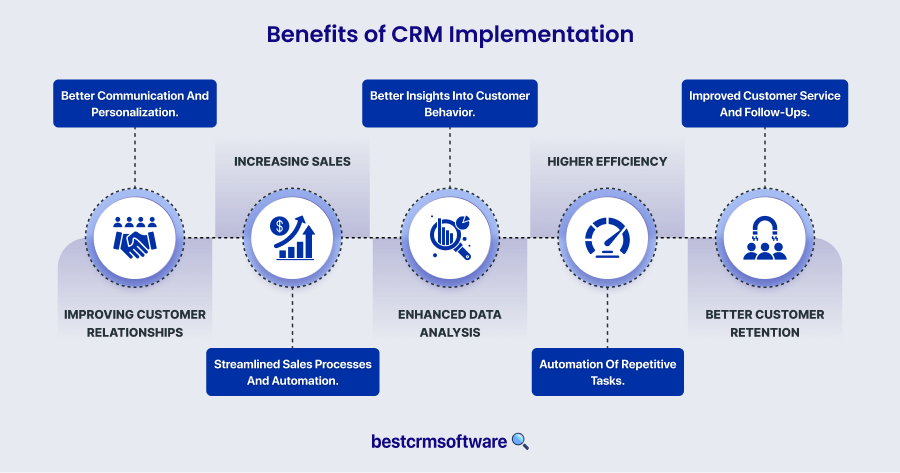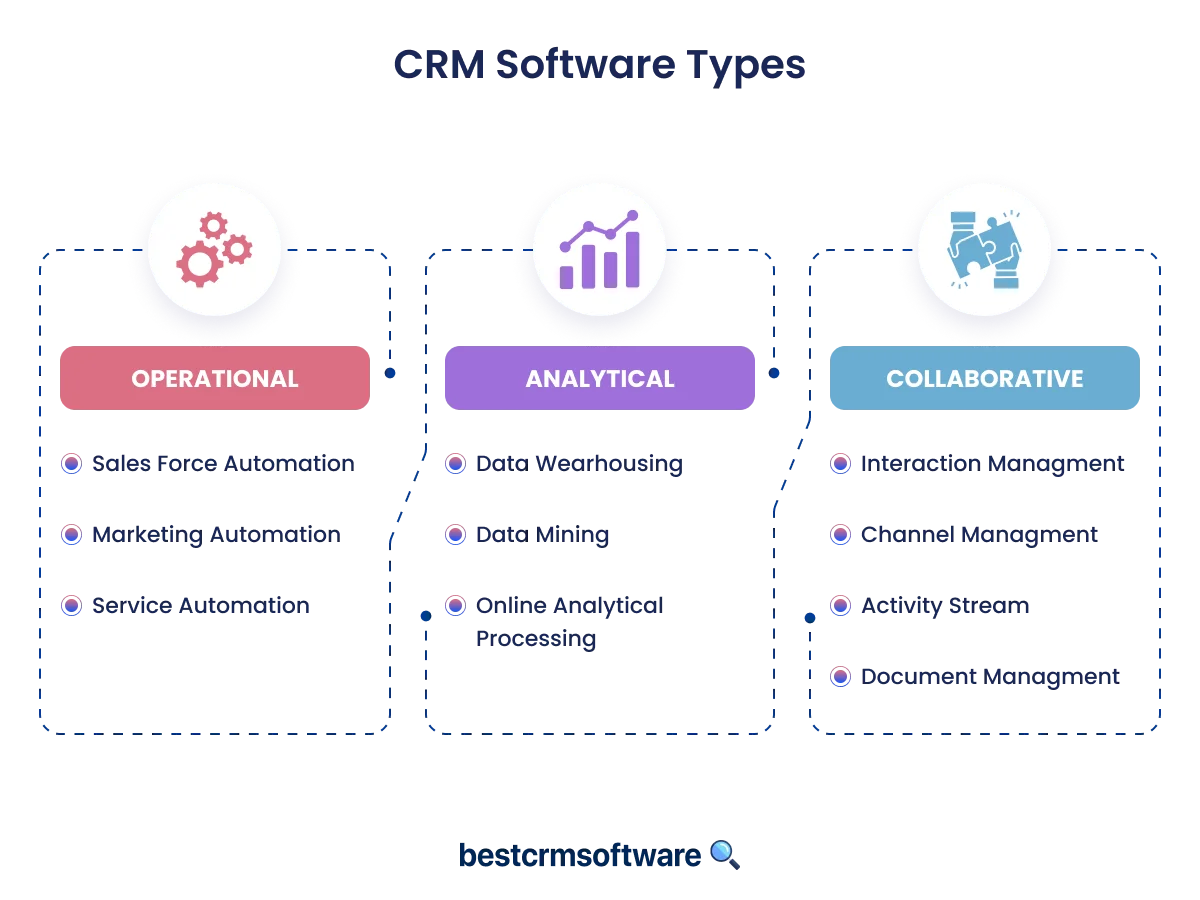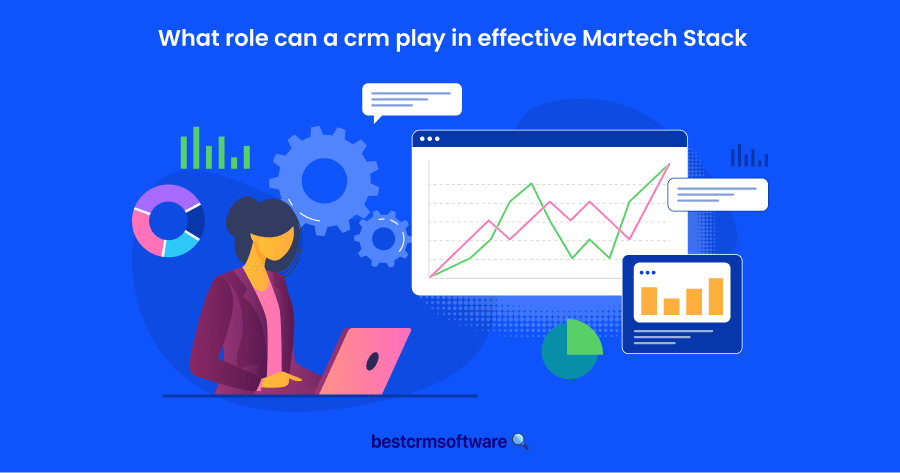
Four different CRM categories and their features explained
Key Takeaways
- CRM as software that boosts sales, marketing and lead teams
- four types: operational, analytical, collaborative, and strategic CRMs
- main CRM features
- how to choose CRM for your company
CRM is an abbreviation that stands for Customer Relationship Management. It’s a type of software that helps companies with managing their workload. That way, all those dull, repetitive tasks are done via automation. It boosts your business because it improves communication with your customers and within your team. Moreover, since there are various types of CRM software, every company can find one that fits its needs.
Categories of CRM Software

In general, there are four main CRM categories. There are operational, analytical, collaborative, and strategic CRM software systems. Each of these categories offer an abundance of tools to both small and big companies.
However, you’ll see that some of the software is multidisciplinary and fits into multiple categories. So, let’s dive into each of those categories separately.
Operational CRM
As its name says, it helps businesses with operations regarding sales, marketing, and service. Thanks to its automation features, your employees will do their daily tasks faster and more effectively. Other significant features are lead and contact management.
This all leads to seamless customer experience which, on the other hand, makes the entire customer lifecycle more stable.
How Does Operational CRM Work?
Operational CRM is there for faster and smooth handling of all business data. For example, you need to process a refund to your customer. In just a few clicks, the task is completed. Customer’s refunds will be on their way. Such rapid operations are possible thanks to cloud-based storage. With that, it can pile endless customer data and quickly process desired data.
What Type of Companies Will Mostly Benefit From Operational CRM?
Since its main features are automation for sales, marketing, and customers, the most beneficial it’ll be for:
- administration companies, such as law and accounting agencies
- retail and supply agencies (utility agencies)
- financial agencies (banks, investment, and insurance agencies)
- hospitality agencies (hotels, travel agencies, restaurants)
- E-commerce (online shops)
- healthcare providers
- telecommunication agencies
The Best Operational CRM: Salesforce
Salesforce is the most used and thus, the most popular operational CRM software. It’s a full package of useful and easy-to-use tools for sales, collaborations, and integrations. However, it doesn’t work offline. Concerning the pricing, you can have the basic one for $25 per year or the unlimited, for $300 per month or per user.
Other Popular Operational CRM Tools
Besides Salesforce, there are some other popular operational types of CRM:
- Agile CRM – for project management
- HubSpot – the best free CRM software
- Capsule – the ease-of-use CRM vendor
- Zoho – for small business
- Really Simple Systems – for Start-Ups
- Accelo – for sales teams
- Keap – for marketing teams
- Pipedrive – for email integration
- Bitrix24 – for team collaboration
- Less Annoying CRM -for contact management
- SuiteCRM – CRM app
- Insightly – CRM tool with business intelligence
Analytical CRM Software Systems
Analytics is crucial for the entire business. Exact and plausible data analysis leads to successful marketing campaigns, sales forecasting, and customer retention. Moreover, companies will get a constructive insight into customers’ behavior. Also, it’ll help you organize your data, which improves decision-making strategies.
What Are the Main Features?
All analytical CRM tools are equipped with data mining, predictive and prescriptive analytics, such as OLAP, reporting capabilities, and customer segmentation. Data mining is for providing insights into customers’ habits. Customer segmentation divides your customers into groups based on data. There’s also a diagnostic analytical CRM tool. It’s perfect for tracking the entire customer journey.
What Type of Companies Will Mostly Benefit From Analytical CRM?
Basically, all the companies I mentioned above are in the operational CRM. That is, retail, healthcare, financial agencies, and the hospitality sector. The one I haven’t mentioned above, the
manufacturing and tech companies, will also have lots of benefits from analytical CRM tools. To what extent it will be beneficial depends on your company’s objectives. That it’s to say, what they look for in a CRM.
The Best Analytical CRM: Salesforce Einstein
First, don’t confuse it with a Salesforce platform. Salesforce Einstein is a set of AI-generated tools that are integrated into Salesforce. In other words, it can predict your customer behavior better than any other tool. Besides the Salesforce platform, Salesforce Einstein can be integrated into Analytics Cloud, Community Cloud, Sales Cloud, Marketing Cloud, and Service Cloud.
Other Top Analytical CRM Tools
- Hubspot Marketing Analytics – for data analysis for marketing
- Zoho – for small business
- Zendesk Explorer – for customer support
- Freshworks Neo – for sales process analysis
- Creation – for workflow analytics
- Insightly – for medium and large businesses
- Bitrix24 – for social media ad analysis
- Grow – for business intelligence
- Mixpanel – for service analysis
Collaborative CRM
Effective communication leads to seamless business processes. That’s why this type of CRM focuses on improving collaboration and communication within the teams of one company. With the help of collaborative CRM tools, your customer support teams, interaction and channel management teams, and all others will smoothly do their tasks.
What Are the Main Features
Every collaborative CRM software must have tools for internal communication, document sharing, customer interaction tracking, and task management. One of such features includes easy online conferences, and similar.
What Type of Companies Will Mostly Benefit From Collaborative CRM?
I can just name all previously mentioned companies, and I won’t be wrong. However, what I want to pinpoint is that these tools really enhance communication. Thus, companies that need to improve communication and cooperation should consider implementing such CRMS in their work.
The Top Collaborative CRMs:
The best collaborative CRMs are:
- Salesforce – simply the best CRM
- SAP Business One – for cross-teams decision-making processes
- Microsoft Dynamics 365 – AI-integrated tool for sharing customer insights
- Sugar CRM – interface for sharing documents and project management
- Sage CRM – multiple options
- Copper CRM – a niche software for small businesses
- Bitrix24
- Pipeliner CRM
Strategic CRM
Last but not least is strategic CRM. This might be even the most important CRM software. Why? Because, there’s only success with a strategy. And, there’s no business without a strategy. With these tools you have adjustable strategies for existing and potential customers.
What Are the Main Features
As strategic CRMs focus on fostering relationships with your customers, main features are mainly related to that. So, the main features include customer loyalty programs, feedback management, personalized marketing campaigns, and customer lifecycle management.
Who Will Mostly Benefit From Strategic CRMs
Well, it’s any company who wants to build a strong relationship with customers. Those are usually customer service agencies, hospitality agencies, gyms, repair shops, and online shops.
The Best Strategic CRMs
The best ones that fall into this category are:
- Monday.com – multiple options
- Zoho
- Pipedrive
- Freshsales – revenue-oriented AI CRM tool
- Capsule
- Hubspot
Different Features That CRM Software Offers
By now, it’s clear that four CRM categories are oriented toward specific areas. It is either for seamless operations, nondisruptive collaboration, successful strategy, and qualitative analytics. But that’s not the only reason why CRM software is so popular within companies. CRM can have 38 key features in total. I’ll go through the ones I find the most significant.

Mobile CRM
Mobile CRM shows how technology never ceases to astonish us with its development. Being able to do your work from a mobile phone device in just a few clicks changes the way people work. Thanks to the cloud-based storage, all your piles of customers’ data are accessible on your phone via apps.
Benefits and Drawbacks of Mobile CRMs
Let’s check the good and bad sides of mobile CRMs.
Benefits of Mobile CRMs
The benefits are:
- data updated in real time
- all departments have instant access to needed data
- faster track of tasks completion
- improved communication with your customers
- high-quality built-in integration in CRM apps
- work on a go
- compatibility across devices
- built-in calendars for planning
- dial-ups for meetings
Drawbacks of Mobile CRMs
The drawbacks are:
- small screen
- not suitable for complex business process
- additional costs
- security concerns
Marketing Automation
Every business owner and marketing team wants to have a successful marketing campaign. However, your marketing team can be overburdened with lots of work that can disrupt the campaign.
That’s why there’s a marketing automation feature. This feature allows many repetitive marketing tasks to be done via automation. Moreover, it can automatically calculate your ROI (return of investment).
Email Marketing
Email marketing is a specific type of marketing automation. It sends all your marketing via email automation. Moreover, this automation can be adjusted to the preferences of every company. Your marketing team can rest.
This feature sends emails according to the chosen settings. Nobody really wants to spam your potential and existing customers with constant emails about your offers. The most popular CRM email marketing software is MailerLite.
The Benefits and Drawbacks of Marketing Automation
In order to see how good this feature is, let’s check its good and bad sides.
Benefits
The benefits are:
- does repetitive work for you
- saves time
- adaptable to every company
- cut the marketing costs
- combine more processes
- boosts more sales
- Improved lead management team
- provide better insights for strategic planning
Drawbacks
Drawbacks are:
- possible marketing spam
- pricing
- more general than personalized marketing
- Possibility of technical issues
Lead Management
This feature’s importance will be much clearer after describing the term ‘lead’ in the CRM system. The ‘lead’ means your potential customer. So, lead management is a CRM key feature that focuses on enhancing your relationship with your potential, next customers.
To be precise, lead management feature facilitates categorizing, scoring, targeting leads, as well as strengthening your relationship with them. It’s mostly combined with email marketing and analytics tools.
Lead Generation
The most important part of the lead management feature. It’s because it’s responsible for collecting data on potential customers, as well as existing customers. That way every business will know how to adjust their offer to customers. Shortly, it attracts leads and keeps the existing ones.
Reporting
Reporting CRMs are the main features in analytical CRM softwares. They help companies to analyze and systematize collected data, and then produce reports. Thanks to these tools, your employers will have more plausible data for further planning and forecasting.
What Are the Main Benefits of Reporting CRMs
Benefits, or in other words, reasons why this feature is important in CRMs, are as following:
- getting faster information on your business
- scaling sales via Sales Pipeline Reports
- detail forecasting of costs
- faster and more correct report on customers’ behavior
- faster reviews on the effectiveness of sales strategies
- report on progress and achieving goals
Artificial Intelligence (AI) CRM
Artificial intelligence has found its place and purpose even in CRM software. This AI feature is successfully integrated within a CRM software. It enhances all other features with one CRM system. For example, that’s why you have the Salesforce Einstein AI tool in Salesforce. It mostly provides plausible insights into probable customers’ behavior and data analysis.
The Top AI CRMs
There are several popular AI CRM features. They are:
- Salesforce Einstein integrated within Salesforce
- Hubspot AI – multiple settings available
- Freshsales – chatbot tools
- Pipedrive – sales suggestions
- Zoho – multiple options
- Zendesk – for lead management
Contact Management
As its name suggests, it facilitates and manages all the contact information, especially in storing and analyzing it for further needs. This way they also improve sales strategies, and thus to a stable progress of a company. Salesforce is all-time-best praised CRM software.
It encompasses all four categories, but it’s really impressive how it helps in operating with customers’ data. So, Salesforce has become a routine in the work of inbound agencies and similar companies.
What Does Contact Management Feature Do
Thanks to its cloud-based storage, it:
- smoothly operates with customers’ data
- fulfills the repetitive tasks via automation
- Faster and improved classification of customers’ data
- boost personalization toward customers’ needs
- scalability
How to Choose the Right CRM for Your Business
Choosing the right CRM for business is in some way a Shakespearean question ‘’to be or not to be’’. With the right software, every business flourishes, and with every wrong one, it falls aparts. Since I’ve written a detailed article on the complete steps of choosing, I’ll just write a bullet list of those steps.
Steps in the Process of Choosing the Right CRM for Business
The steps include:
- Go through your business goals
- determine what you want to achieve with CRMs, or
- How CRM can help you in achieving your goals
- analyze what type of CRM software better suits your business
- consider the IT requirements and costs of maintenance for every CRM
- Is it scalable
- Consider the data storage and security

Conclusion
Technology goes far beyond our expectations. It facilitates many things, and it continuously changes the business world. As Customer Relation Management, CRM helps many businesses boost their work and success. Many tasks are done in a faster and more accurate way. People don’t waste time on repetitive tasks but rather focus on more important tasks.
Even though they are divided into four categories, all CRMs can be integrated into one effective tool for a seamless job. So, our only task is to go through the check-up list, and find the best ones for our companies.
Explore our other blogs too! Our CRM experts publish helpful content daily, covering a range of topics from how-to guides to in-depth articles on white label CRM solutions.






